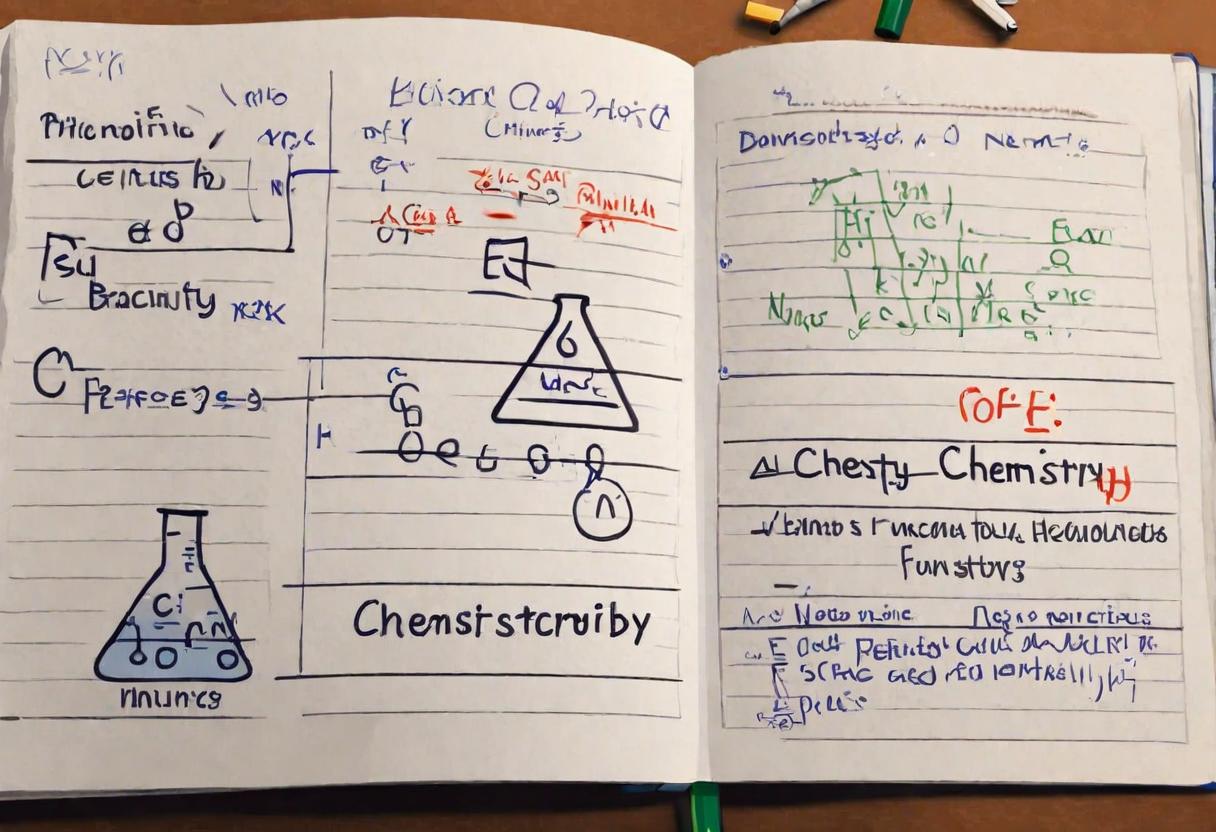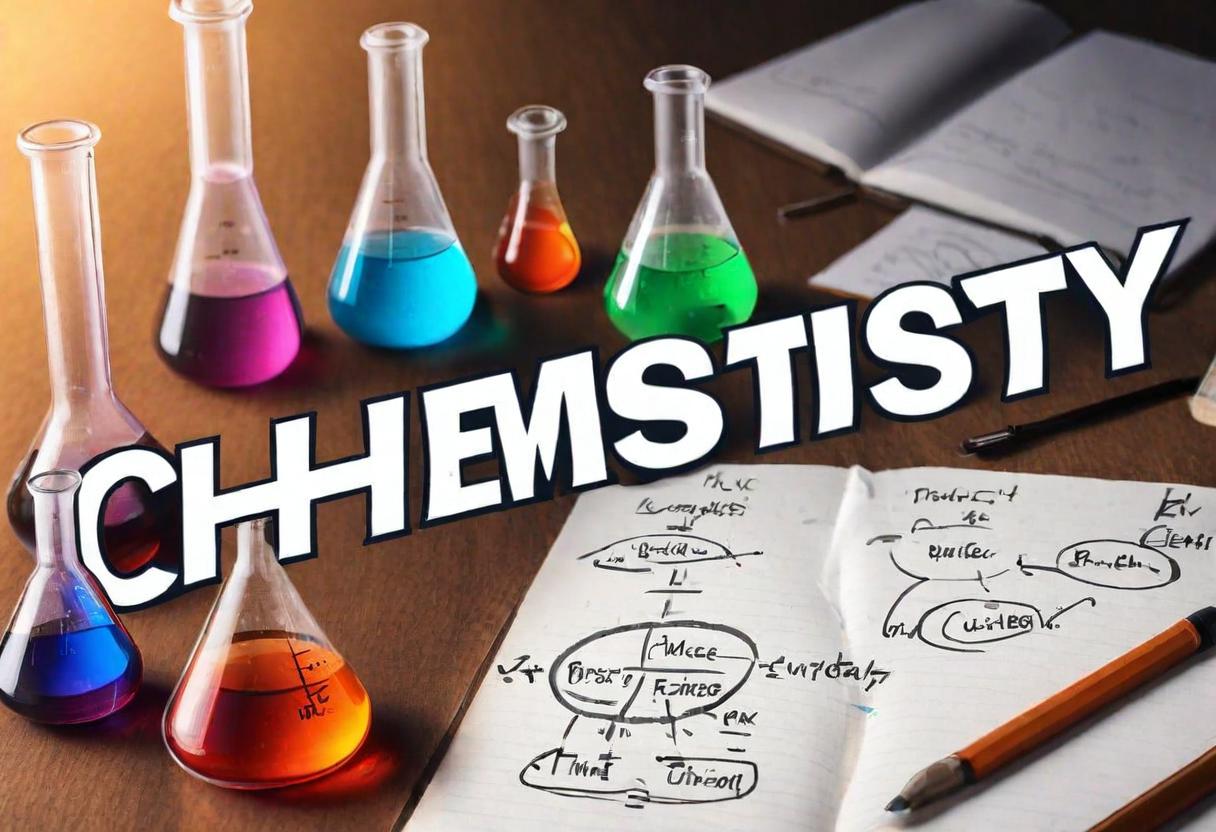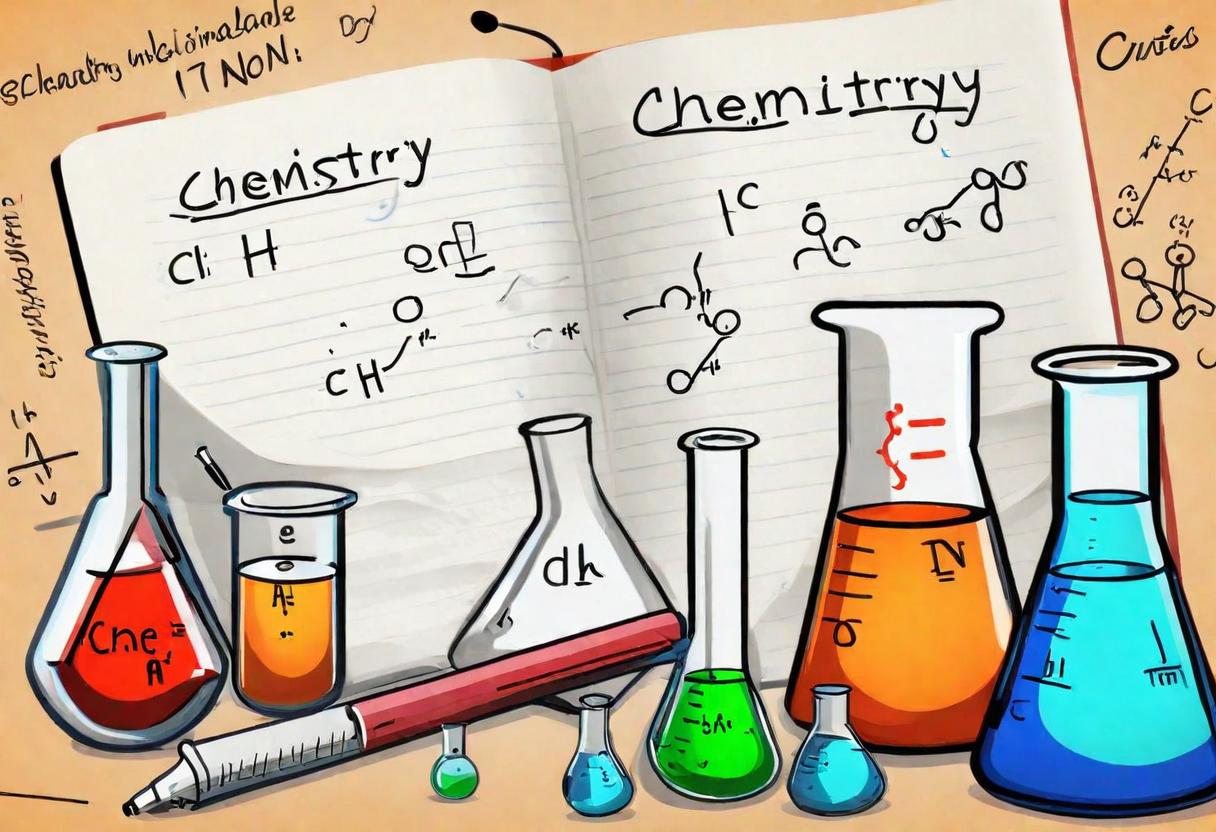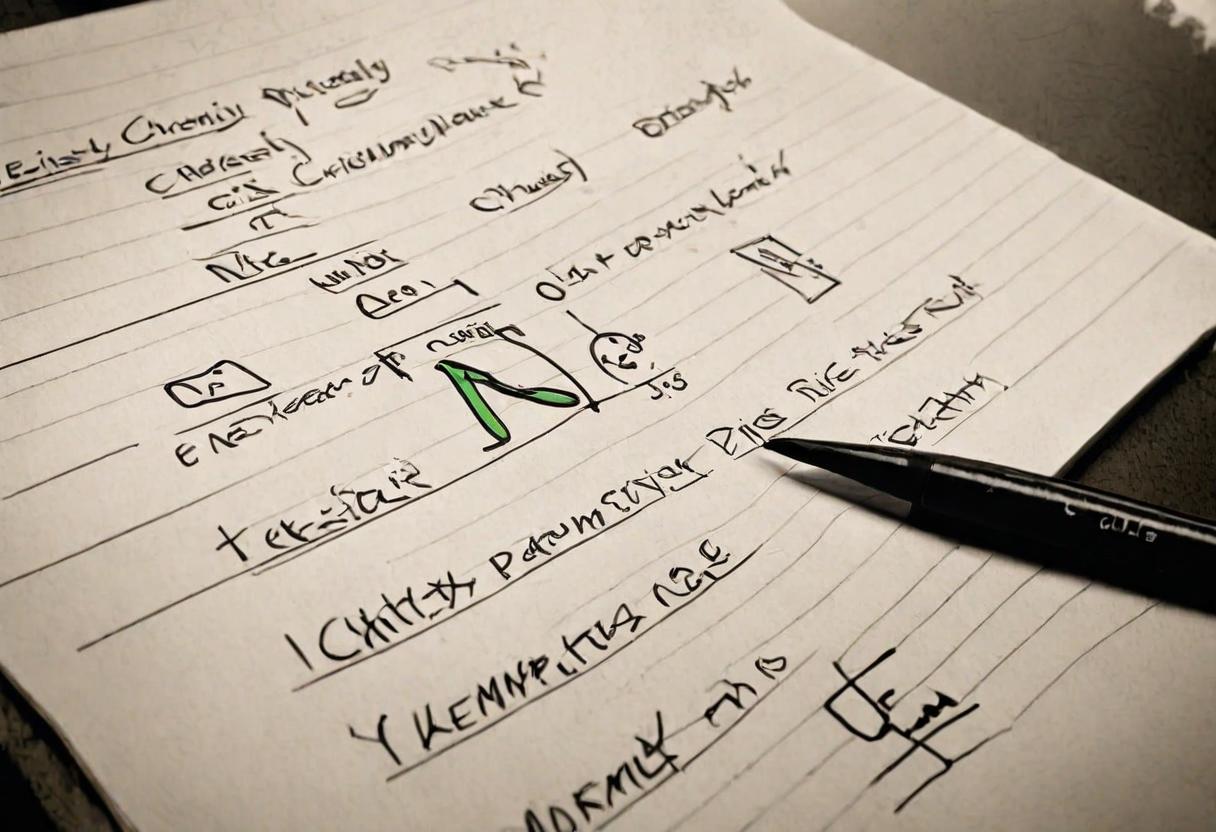Welcome chemistry enthusiasts! Whether you’re a student in India tackling CBSE or ICSE boards, or preparing for international exams like IGCSE, AP Chemistry, or the prestigious IIT-JEE or NEET entrance exam, this Chemistry Notes Page serves as your one-stop shop for effective 11 and 12 grade chemistry notes as well as other boards and chemistry exam notes.
We understand the importance of clear explanations, relevant examples, and a well-structured approach to mastering chemical concepts. This meticulously crafted resource provides a strong foundation for exam success, aligned with the specific curriculums of various boards.

Key Features of Our Chemistry Notes:
- Chapter-wise Coverage: Get organized and focused with in-depth notes for each chapter prescribed by your respective board (CBSE, ICSE, IGCSE, AP, IIT-JEE, NEET syllabus etc.).
- Clear & Concise Explanations: Break down complex topics into easy-to-understand concepts using straightforward language and clear illustrations.
- Essential Diagrams & Figures: Visualize chemical structures, reactions, and processes for enhanced learning and memory retention.
- Exam-Oriented Approach: Identify key areas and frequently tested topics to optimize your exam preparation.
- Board-Specific Considerations: Address any syllabus variations or specific focus areas for each board (CBSE, ICSE, IGCSE, AP, or IIT-JEE).
Benefits of Using Our Chemistry Notes:
- Improved Subject Understanding: Gain a deeper grasp of fundamental chemical principles and their applications.
- Enhanced Exam Preparation: Feel confident tackling exams with a solid understanding of key concepts and relevant practice.
- Streamlined Revision: Utilize concise and well-organized notes for efficient exam review and last-minute preparation.
- Strong Foundation: Build a strong foundation in chemistry that prepares you for further studies in science and related fields.
- Time-Saving Resource: Save valuable study time by focusing on high-yield content and clear explanations.
Now, let’s delve into the exciting world of chemistry Notes!

Chapter-wise Breakdown (Specific content will vary depending on your chosen board):
- Some Basic Concepts of Chemistry: Explore the nature of matter, states of matter, classification of elements and compounds, and the periodic table.
- Structure of the Atom: Delve into the atomic structure, including subatomic particles (protons, neutrons, electrons), atomic number, mass number, isotopes, and electronic configurations.
- Chemical Bonding and Molecular Structure: Understand the different types of chemical bonds (ionic, covalent, metallic) and their impact on molecular structure, shapes, and properties.
- Chemical Thermodynamics: Explore the concepts of enthalpy, entropy, free energy, and their role in chemical reactions.
- Equilibrium: Grasp the concept of chemical equilibrium, Le Chatelier’s principle, and factors affecting equilibrium constants.
- Redox Reactions: Master the principles of oxidation, reduction, redox reactions, balancing redox equations, and assigning oxidation numbers.
- Hydrogen: Discover the unique properties, reactions, and importance of hydrogen as the first element in the periodic table.
- s-Block Elements: Explore the properties, reactions, and trends of group 1 (alkali metals) and group 2 (alkaline earth metals) elements.
- p-Block Elements: Delve into the properties, reactions, and trends of groups 13-18 elements, including important industrial and environmental elements.
- Organic Chemistry – Some Basic Principles and Techniques: Get introduced to the fundamental concepts of organic chemistry, functional groups, nomenclature, and essential laboratory techniques.
- Hydrocarbons: Understand the different types of hydrocarbons (alkanes, alkenes, alkynes, and aromatics) and their properties.
- (Optional Chapters – May vary based on board):
- Environmental Chemistry
- Chemical Kinetics
- Electrochemistry
- Solid State Chemistry
- Solutions
Get Your Chemistry Notes Below 

- AP Chemistry Notes(Soon)

- Class 11 Chemistry Notes(Available)

- Chemistry Notes Class 12(Soon)

- ICSE/ ISC Chemistry Notes(Soon)

- IGCSE Chemistry Notes(Soon)

- IIT-JEE Chemistry Notes(Soon)

- NEET Chemistry Notes(Soon)


Tips for Effective Use of These Chemistry Notes:
- Actively Read and Engage: Don’t just passively read the notes. Underline or highlight key points, take margin notes, and actively engage with the content.
- Practice Makes Perfect: Supplement your understanding with practice problems from your textbook or additional resources.
- Connect the Dots: Relate the concepts you learn to real-world examples and applications of chemistry in everyday life or technological achievements.
Utilizing Additional Resources Other than Chemistry Bench Chemistry Notes:
- Textbooks: Alongside these notes, thoroughly study your prescribed chemistry textbook for in-depth explanations, derivations, and a wider range of practice problems.
- Online Resources: Utilize reputable online resources like chemistrybench.com, interactive simulations, and video tutorials to enhance your understanding through different learning styles.
- Teacher Support: Don’t hesitate to seek clarification from our chemistry teachers during lectures or office hours. They are valuable resources to address specific questions and provide guidance.
You can Fill the following form  to get assistance from our Technical and Teaching Staff Regarding Online Chemistry Classes and Tutors. Click Here to get Form.
to get assistance from our Technical and Teaching Staff Regarding Online Chemistry Classes and Tutors. Click Here to get Form.
Chemistry Exam Strategies:
- Time Management: Practice effective time management during exams by allocating appropriate time to each section based on weightage and difficulty.
- Revision Techniques: Develop personalized revision techniques that work best for you, such as mind maps, flashcards, or group study sessions.
- Mock Tests: Take advantage of mock tests or previous years’ exam papers to familiarize yourself with the exam format, question types, and time constraints.
- Positive Attitude: Maintain a positive and focused attitude during exam preparation and execution.
Remember: Consistent study habits, effective learning strategies, and a positive approach are key ingredients for success in your chemistry exams.

Conclusion:
We hope this comprehensive guide serves as a valuable companion throughout your 11th and 12th grade chemistry journey, irrespective of the board you follow (CBSE, ICSE, IGCSE, AP, or IIT-JEE). By effectively utilizing these meticulously crafted notes, along with recommended resources and a strategic study approach, you’ll be well-equipped to conquer your exams and build a strong foundation for future endeavors in chemistry and related fields.
Disclaimer: The specific chapters and topics covered may vary depending on the curriculum of your chosen board (CBSE, ICSE, IGCSE, AP, IIT-JEE, NEET or any other Board or Competitive Exam). Ensure you consult your board’s syllabus for the most up-to-date information.
Further Customization:
This content serves as a foundation, and you can customize it further by:
- Including specific sub-headings within each chapter for better organization.
- Adding short practice problems or quizzes after each chapter to test knowledge retention.
- Providing links to reputable online resources or video tutorials for specific topics.
By incorporating these suggestions and tailoring the content to your specific board’s syllabus, you can create an exceptional resource for students across various educational paths.
Click Here and Explore Chemistry Bench Online Chemistry Courses & Tutors












 to get assistance from our Technical and Teaching Staff Regarding Online Chemistry Classes and Tutors. Click Here to get Form.
to get assistance from our Technical and Teaching Staff Regarding Online Chemistry Classes and Tutors. Click Here to get Form.